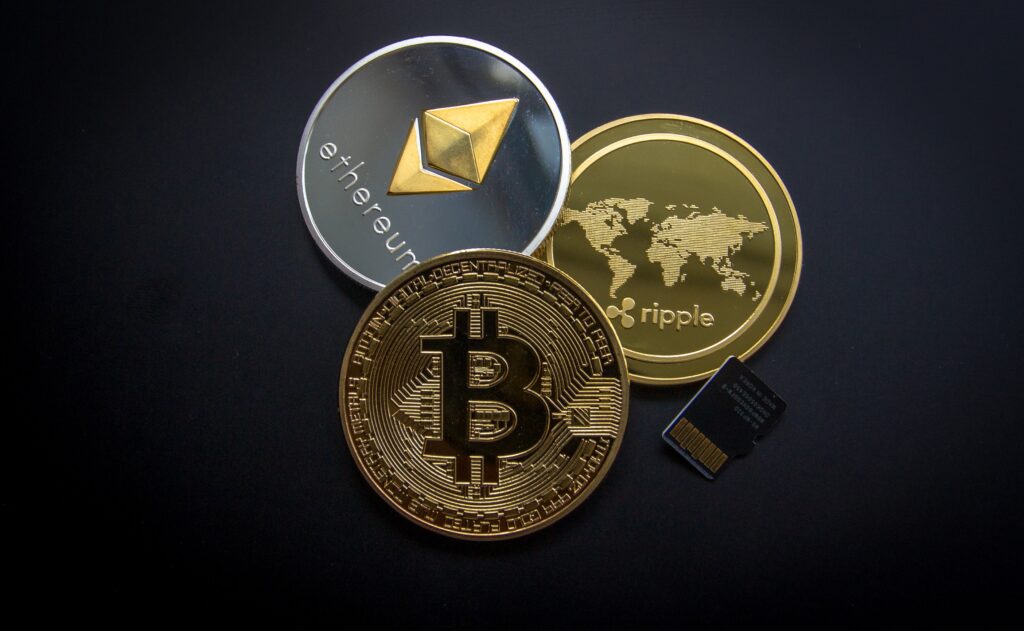
Introduction
In this digital era, cryptocurrency has emerged as a revolutionary form of digital currency that has gained immense popularity. With its decentralized nature and potential for high returns, it has attracted the attention of investors worldwide. However, understanding the intricacies of cryptocurrency can be daunting for beginners. This blog aims to provide a comprehensive guide to cryptocurrency, equipping beginners with the knowledge needed to navigate this exciting financial landscape.
What is Cryptocurrency?
Cryptocurrency is a form of digital or virtual currency that utilizes cryptography for secure transactions, control the creation of new units, and verify the transfer of assets. Unlike traditional fiat currency issued by governments, cryptocurrency operates on decentralized networks known as blockchains. Bitcoin, the pioneering cryptocurrency, was created in 2009, and since then, thousands of other cryptocurrencies have emerged, each with its unique features and purposes.
Benefits of Cryptocurrency
Cryptocurrency offers several advantages over traditional financial systems. Firstly, it provides greater security through cryptographic techniques, ensuring the integrity of transactions. Additionally, cryptocurrency transactions can be conducted directly between individuals without intermediaries, reducing fees and delays. Furthermore, cryptocurrencies offer the potential for high returns on investment due to their volatile nature.
Popular Cryptocurrencies
While there are numerous cryptocurrencies in existence, some have gained widespread recognition and adoption. Bitcoin, often referred to as digital gold, remains the most dominant and valuable cryptocurrency. Other popular cryptocurrencies include Ethereum, Ripple, Litecoin, and Bitcoin Cash. Each cryptocurrency has its unique features and characteristics, catering to different use cases and industries.
How to Get Started with Cryptocurrency
Getting started with cryptocurrency involves several key steps. The first step is setting up a digital wallet, which serves as a secure storage space for your cryptocurrencies. Wallets can be hardware devices, software applications, or even online platforms. Once a wallet is set up, you need to choose a cryptocurrency exchange, where you can buy, sell, and trade cryptocurrencies.
Setting up a Digital Wallet
A digital wallet is a crucial component for securely storing and managing your cryptocurrencies. Think of it as a digital equivalent of a physical wallet where you can store your money. However, instead of holding physical cash or cards, a digital wallet stores your private keys, which are necessary for accessing and managing your cryptocurrencies on the blockchain.
There are several types of digital wallets available, each with its own advantages and considerations. Let’s explore three common types: hardware wallets, software wallets, and online wallets.
- Hardware Wallets: Hardware wallets are physical devices designed specifically for cryptocurrency storage. Popular hardware wallets include Ledger and Trezor. These devices provide an added layer of security by keeping your private keys offline. When you want to make a transaction, you connect the hardware wallet to your computer or mobile device and authorize the transaction. This offline storage significantly reduces the risk of hacking attempts or malware compromising your private keys.
- Software Wallets: Software wallets, such as Exodus and Trust Wallet, are applications that you install on your mobile device or computer. They offer convenience and accessibility, allowing you to manage your cryptocurrencies from the comfort of your device. Software wallets can be further categorized into desktop wallets and mobile wallets.
- Desktop wallets: These are applications installed on your computer or laptop. They provide a higher level of security than online wallets because your private keys are stored locally. However, it’s essential to ensure your device is free from malware or viruses that could potentially compromise your wallet’s security.
- Mobile wallets: These wallets are designed for smartphones and tablets, offering a user-friendly interface and on-the-go accessibility. Mobile wallets are convenient for everyday use and can be used for both online and offline transactions. However, it’s crucial to secure your mobile device with a strong password or biometric authentication to prevent unauthorized access.
- Online Wallets: Online wallets, also known as web wallets, are web-based platforms accessible through web browsers. Popular online wallets include Coinbase and Binance. These wallets provide easy access to your cryptocurrencies from any device with an internet connection. However, since online wallets store your private keys on a remote server, there is a level of risk involved. It’s essential to choose reputable online wallets with robust security measures, including two-factor authentication, to protect your funds.
When choosing a digital wallet, it’s important to consider factors such as security, ease of use, and compatibility with the cryptocurrencies you plan to store. Research different wallet options, read user reviews, and ensure that the wallet aligns with your specific needs.
Remember, it is crucial to keep your wallet’s private keys secure and make regular backups. Losing your private keys could result in permanent loss of access to your cryptocurrencies. By taking the necessary precautions and choosing a wallet that suits your requirements, you can confidently store and manage your cryptocurrencies.
Choosing a Cryptocurrency Exchange
When it comes to choosing a cryptocurrency exchange, it’s important to find a platform that meets your specific needs and provides a secure and user-friendly experience. Here are some essential factors to consider when selecting an exchange:
- Security Measures: Your security should be a top priority when choosing a cryptocurrency exchange. Look for exchanges that prioritize robust security measures, such as two-factor authentication (2FA) and encryption protocols. Additionally, consider exchanges that have a solid reputation and a track record of safeguarding user funds. User reviews and industry rankings can provide valuable insights into an exchange’s security practices.
- Fees and Trading Costs: Exchanges charge various fees for their services, including deposit, withdrawal, and trading fees. These fees can vary significantly among exchanges, so it’s important to understand the fee structure before committing to a platform. Some exchanges offer tiered fee structures based on trading volume, so take your trading habits into account when evaluating the fee schedule. Consider both the percentage-based fees and fixed fees when comparing different exchanges.
- Available Cryptocurrencies: Different exchanges support various cryptocurrencies, and the selection can vary greatly. Ensure that the exchange you choose supports the cryptocurrencies you intend to buy, sell, or trade. If you have specific altcoins in mind, make sure they are listed on the exchange. It’s also beneficial to check if the exchange regularly adds new cryptocurrencies to its offerings to accommodate future investment options.
- User Experience and Interface: The user experience and interface of the exchange can greatly impact your trading experience. Look for exchanges with intuitive and user-friendly interfaces that make it easy to navigate and execute trades. A cluttered or confusing interface can lead to mistakes and frustration. Additionally, consider whether the exchange offers mobile applications for trading on the go, as this can provide convenience and flexibility.
- Liquidity and Trading Volume: Liquidity refers to the ease with which an asset can be bought or sold without significantly affecting its price. Higher liquidity ensures that you can enter and exit positions quickly and at fair prices. Check the trading volume and liquidity of the exchange you’re considering. Exchanges with higher trading volumes usually have more liquidity, which can result in faster order execution and better price stability.
- Customer Support: Prompt and reliable customer support is crucial when dealing with cryptocurrency exchanges. Look for exchanges that offer responsive customer support channels, such as live chat, email, or phone support. This can be particularly important if you encounter any issues with your account or transactions. Researching user experiences and feedback can provide insights into the quality of customer support offered by different exchanges.
It is highly recommended to thoroughly research and compare different exchanges before making a decision. Reading user reviews, checking out forums, and seeking recommendations from trusted sources can help you gain a better understanding of the overall reputation and reliability of the exchange.
Remember, the cryptocurrency exchange you choose will play a significant role in your trading journey. By carefully considering the factors mentioned above and finding an exchange that aligns with your needs, you can embark on your cryptocurrency trading adventure with confidence.
Buying and Selling Cryptocurrency
Once you have set up your digital wallet and chosen a cryptocurrency exchange, you’re ready to dive into the exciting world of buying and selling cryptocurrencies. Here’s a step-by-step guide on how to navigate this process:
- Funding Your Exchange Account: To start buying cryptocurrencies, you’ll need to fund your exchange account. Most exchanges support deposits in fiat currencies like the US dollar or Euro, as well as other cryptocurrencies. You can typically transfer funds from your bank account to the exchange or use payment methods such as credit/debit cards or wire transfers. Follow the exchange’s instructions for depositing funds and ensure you understand any associated fees or processing times.
- Placing Orders: Once your exchange account is funded, you can place orders to buy or sell cryptocurrencies. There are two common types of orders: market orders and limit orders.
- Market Orders: A market order allows you to buy or sell cryptocurrencies at the current market price. When placing a market order, you are essentially accepting the best available price in the order book. Market orders are executed quickly but may be subject to price slippage if the market is highly volatile.
- Limit Orders: A limit order allows you to set a specific price at which you want to buy or sell a cryptocurrency. If the market reaches your specified price, the order is executed. Limit orders provide more control over the price at which you transact but may not be filled immediately if the market doesn’t reach your desired price.
- Buying Cryptocurrency: To buy cryptocurrency, you would typically select the cryptocurrency you want to purchase from the available options on the exchange. Enter the amount of cryptocurrency you wish to buy and choose the type of order you want to place (market or limit). Review the order details and confirm the transaction. Once the order is executed, the cryptocurrency will be credited to your exchange account.
- Selling Cryptocurrency: Selling cryptocurrency follows a similar process. Select the cryptocurrency you want to sell, enter the amount you wish to sell, and choose the order type (market or limit). Review the order details and confirm the transaction. Once the order is executed, the corresponding funds will be credited to your exchange account, ready for withdrawal or further trading.
- Withdrawal and Converting to Fiat Currency: If you want to convert your cryptocurrencies back into fiat currency, you can initiate a withdrawal from your exchange account to your linked bank account. Ensure that you have completed any necessary verification processes to comply with the exchange’s withdrawal policies. The withdrawal process may involve additional fees and processing times, depending on the exchange and the banking system.
Remember to monitor the market conditions and stay updated with the latest news that may impact cryptocurrency prices. It’s essential to make informed decisions based on your investment goals and risk tolerance. Consider setting price targets or stop-loss orders to manage your positions effectively.
As you gain experience, you may explore advanced trading features offered by some exchanges, such as margin trading or futures contracts. However, these features involve additional risks, and it’s advisable to thoroughly research and understand them before engaging in such activities.
Understanding Cryptocurrency Market
The cryptocurrency market is highly dynamic and influenced by various factors. It operates 24/7, enabling continuous trading across different time zones. It is important to stay informed about market trends, news, and events that can impact cryptocurrency prices. Factors such as market demand, supply and demand dynamics, regulatory developments, technological advancements, and investor sentiment can significantly affect cryptocurrency prices.
Risks and Security Measures
While cryptocurrency offers exciting opportunities, it is essential to be aware of the risks involved. Cryptocurrency markets are known for their volatility, with prices experiencing significant fluctuations in short periods. This volatility can lead to substantial gains but also potential losses. It is crucial to assess your risk tolerance and invest responsibly.
Security is another critical aspect when dealing with cryptocurrencies. As digital assets, cryptocurrencies are vulnerable to hacking attempts and cyber theft. To enhance security, it is recommended to use strong and unique passwords, enable two-factor authentication, and regularly update your software and wallets. Additionally, consider using hardware wallets for long-term storage and keeping only a portion of your holdings on exchanges.
Importance of Research
Before investing in any cryptocurrency, thorough research is crucial. It is essential to understand the project’s fundamentals, technology, team, community, and market potential. Research can involve reading whitepapers, exploring the project’s website and social media channels, and staying updated with the latest news and developments. By conducting due diligence, you can make informed investment decisions and reduce the risk of scams or poor investment choices.
Keeping Track of Cryptocurrency
As a cryptocurrency investor, it is important to keep track of your holdings and monitor the market. Numerous portfolio tracking applications and websites can help you manage your investments, providing real-time price updates, portfolio performance metrics, and alerts for significant market movements. These tools enable you to make informed decisions and track the progress of your investments effectively.
Tax Implications of Cryptocurrency
Cryptocurrency transactions may have tax implications depending on the jurisdiction you reside in. It is crucial to consult with a tax professional or accountant to understand the tax regulations and reporting requirements related to cryptocurrency investments. By staying compliant with tax laws, you can avoid potential legal issues and ensure the proper management of your finances.
Staying Informed and Educated
The cryptocurrency space is continuously evolving, with new projects and developments emerging regularly. To stay ahead in this dynamic industry, it is essential to stay informed and educated. Follow reputable cryptocurrency news sources, participate in online communities and forums, and consider attending industry conferences or webinars. Continuously expanding your knowledge will help you navigate the cryptocurrency landscape with confidence.
Conclusion
Cryptocurrency presents an exciting opportunity for beginners to explore the world of digital finance. By understanding the basics of cryptocurrency, choosing secure wallets and exchanges, conducting thorough research, and staying informed, beginners can navigate the cryptocurrency market with confidence. Remember to invest responsibly, be aware of the risks involved, and continuously educate yourself to make informed investment decisions.
FAQs
- What is the best cryptocurrency for beginners?
- The best cryptocurrency for beginners depends on individual preferences and investment goals. Bitcoin and Ethereum are popular choices due to their established track record and widespread adoption.
- How do I keep my cryptocurrencies safe?
- To keep your cryptocurrencies safe, use hardware wallets for long-term storage, enable two-factor authentication, and stay updated with security best practices.
- Can I lose all my money investing in cryptocurrencies?
- Yes, investing in cryptocurrencies carries risks, and there is a possibility of losing all your invested money. It is important to assess your risk tolerance and invest only what you can afford to lose.
- Are cryptocurrencies regulated?
- Cryptocurrency regulations vary by country. Some countries have implemented specific regulations, while others are still in the process of developing frameworks to govern cryptocurrency. It is essential to research and comply with the regulations in your jurisdiction to ensure legal compliance.
- How do I choose a reliable cryptocurrency exchange?
- When choosing a cryptocurrency exchange, consider factors such as security measures, fees, available cryptocurrencies, user experience, and reputation in the industry. Research and compare different exchanges to find one that meets your requirements.
Additional Resources
- CoinMarketCap (https://coinmarketcap.com/)
- Investopedia’s Cryptocurrency Guide (https://www.investopedia.com/cryptocurrency-4682706)
- CoinDesk (https://www.coindesk.com/)
- Binance Academy (https://academy.binance.com/)
- Bitcoin.org (https://bitcoin.org/)
- Ethereum.org (https://ethereum.org/)
- CryptoCompare (https://www.cryptocompare.com/)
- Fintech for Beginners – Wealth Solutions Hub (https://www.wealthsolutionshub.com/everything-finance/fintech-for-beginners/)





